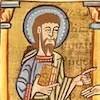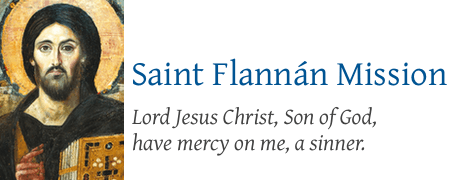 In the Name of the Father and of the Son and of the Holy Spirit, one God. Amen. Dear beloved, we remember St Alexander, Bishop of Comana in the third century, who showed us true humility without vanity, true faith in growing towards God, and love for God and others in his sermons and martyrdom. St Alexander, pray for us.
In the Name of the Father and of the Son and of the Holy Spirit, one God. Amen. Dear beloved, we remember St Alexander, Bishop of Comana in the third century, who showed us true humility without vanity, true faith in growing towards God, and love for God and others in his sermons and martyrdom. St Alexander, pray for us.
As we worship in this holy Church today, what strikes me is that all of us who gathered here often, know that this is a sacred space of God. This Church does not need any adornment – we can feel the sacredness of this space, an incredible space to celebrate our worship towards God.
And yet, in the world we live in today, what kind of man-made rules guide the daily grind? We see people leaning more favorably towards large corporations. We tend to form preconceived notions about a person by how he physically looks, how he dresses, what house he stays in, what car he drives, what kind of educational background he has, what kind of friends he has, and even what job he holds. And yet, do we truly know this person by examining his exterior and material attachments?
Let us then, examine the life of St Alexander, Bishop of Comana.
St Alexander was a faithful Christian who lived like a pauper, selling coal in the market. He is sometimes called the “charcoal burner”. He was always dressed in rags, and seemed to be simple and uneducated. Because he was selling coal, his face and body were always stained in black. Many people, young and old alike, stayed away and made fun of him. The reality was that St Alexander was highly educated and read widely and deeply, especially the Holy Scriptures.
One day, the Bishop of Comana died and a new Bishop was to be elected. The community invited St Gregory, Bishop of Neocesarea, to preside. Most people, clergy and laity alike, chose a list of populist candidates. However, St Gregory did not decide on a name from that list, but instead, preached to the people that God chose David as king, not because of his exterior, but of his heart. The people were not pleased at what St Gregory said, and retorted, “If we don’t need to examine outward appearances, then even Alexander the coalman can be bishop.”
Taking this to be a Divine sign, St Gregory asked who Alexander was and wanted to see him. Everyone laughed when Alexander, in rags and all blackened, stepped forward. But St Gregory saw the grace of God at work in this humble coalman, and pulled St Alexander away from the crowd. When St Gregory talked with St Alexander, he knew that St Alexander was no ordinary coalman, but highly learned and wise, choosing a life of poverty and humility. St Gregory told St Alexander to take a bath and put on clean clothes.
When St Alexander appeared before St Gregory and the community, the people did not recognize him. St Alexander was handsome and clean, and discussed Holy Scriptures eloquently with St Gregory. The community was astonished at St Alexander’s wisdom, and unanimously asked St Gregory to consecrate St Alexander as Bishop of Comana. When St Alexander gave his first homily, everyone was moved greatly in tears of joy.
St Alexander served Comana with preaching and charity. His homilies were often simple with profound wisdom. There was no beautiful words, but simple words that strengthened the faith and growth towards God for the people.
When Diocletian persecuted Christians, St Alexander was brought to court to be tried, and was told to denounce his faith through torture. The bishop would not denounce his faith and he was burned in a furnace.
We as the fallen, are judgmental by nature. When we judge others, we ourselves are judged by others. St Alexander showed us that the most beautiful fruits of God, may not present themselves as such. Likewise, saints of God do not necessarily present themselves in glory and light. They often are seemingly simple and humble. Therefore, would we have crossed the path of a saint without realizing in our daily lives? Could we have offended a saint and disregarded him as a precious icon of Christ?
In our daily walk, let the Holy Name of Christ our Lord be our protection, our absolution, and our mercy, “Lord Jesus Christ, Son of God, have mercy on me, a sinner”.
Let us close by praying the thanksgiving prayer:
It is truly meet to call thee blest, the Theotokos, ever blessed and most pure, and the Mother of our God. More honorable than the Cherubim, and more glorious than the Seraphim, without corruption thou gavest birth to God the Word: True Theotokos, we magnify thee.
O virgin Theotokos, rejoice; O Mary full of grace, the Lord is with thee. Blessed art thou among women, and blessed is the fruit of thy womb, for thou hast borne the Savior of our souls, Jesus Christ our Lord. Amen.
Fr Raphael+
Readings:
Isaiah 11:1-5
Proverbs 19:1-4
St Matthew 24:13-28
2 Corinthians 4:1-6

